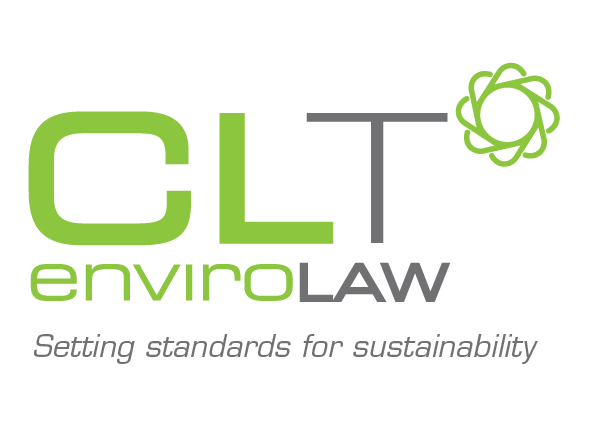 Sustainability: it’s just good OSH
Sustainability: it’s just good OSH
Larissa Prevett LL.B, LL.M
Jr. Associate at CLT envirolaw
Previously we looked at how OSH falls under the auspices of business and human rights, an area in which the UK government recently developed an action plan based on the UN Guiding Principles. We have also considered why organisations should be motivated to promote OSH in the supply chain, or, in other words, share their expertise and experience in this field with suppliers and thereby become protagonists for behaviour change.
Assuming that your paradigm has already started shifting — then this week’s task should prove relatively simpler. I should think setting standards in contracting chains is likely less outlandish in the world of all things OSH, as contractors are perhaps more readily seen as an extension of an organisation’s workforce, so to speak. This is particularly true under the growing phenomenon of outsourcing, as well as where contractors, and even sub-contractors, work on-site (e.g. cleaners, maintenance workers).
A growing issue with taking bids from contractors is that core organisations, or the client, are looking for the cheapest option. The pressure on contractors is to minimise costs rather than deliver value and this has repercussions throughout the contracting chain.
For those of you who think that business is just about the bottom line then this is not surprising, and, in fact, is how it should be. I disagree.
According to Walters and James, there is an inverse relationship between the size of companies and the number of accidents.
[1] The SMEs that are contracted or sub-contracted, probably on the basis of price alone, evidently don’t have the disposable income to spend on ‘luxuries’ such as OSH. This is not to mention other suspicions that a supplier engagement with SME providers might raise, for instance, illegal employment or even trafficking.
As core organisations increasingly rely on what is essentially casual or temporary labour to perform specialised services, they lose touch on who is actually behind their business.
Before considering how a client company can keep a handle on the activities of non-employees, we still need to have a bit more of a think about why.
Most, if not all, of the reasons mentioned last week translate easily from the case of suppliers to that of contractors. These include:
-
growing legal obligations and regulations;
-
stakeholder demands;
-
reputation management;
-
competitive advantage;
-
efficiency and quality of work delivered.
Out of these, according to EU OSHA, regulatory developments appear to be the major trigger in the case of managing contracting chains. Unless core organisations are made responsible for the welfare of workers employed by contractors or for any dubious health and safety incidents, then there is little drive for promoting behaviour change. That is unless actual employees might be put at risk through the actions of contractors or sub-contractors.
The thing that the majority of people don’t realise about sustainability is that it is as much about understanding your organisation’s impact as it is about acknowledging its dependencies and how this could affect the all important bottom line. No doubt, outsourced labour is a major dependency for core organisations today — what would happen to certain businesses if something went really wrong at contractor or sub-contractor level?
The need for supplier engagement and, more specifically, risk assessment is crucial. This naturally and necessarily includes OSH.
Now you’re probably thinking that all this is very well, but how can you actually go about promoting OSH in the supply chain? Stay tuned until next time — or share your views below.
1. Walters, D. and James, P., ‘Understanding the role of supply chains in influencing health and safety at work’, 2009, Institution of Occupational Safety and Health, Leicester
The Safety Conversation Podcast: Listen now!
The Safety Conversation with SHP (previously the Safety and Health Podcast) aims to bring you the latest news, insights and legislation updates in the form of interviews, discussions and panel debates from leading figures within the profession.
Find us on Apple Podcasts, Spotify and Google Podcasts, subscribe and join the conversation today!

 Sustainability: it’s just good OSH
Sustainability: it’s just good OSH